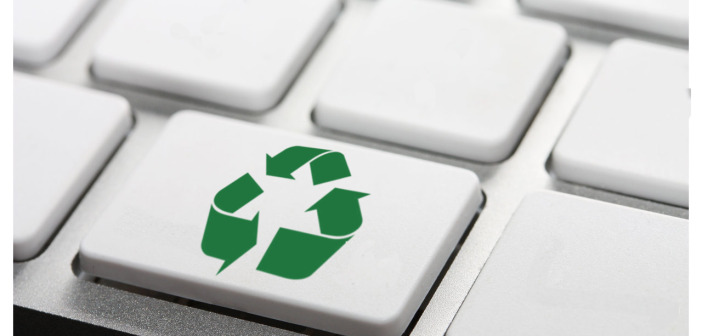Recycling is one of those things we just accept. When someone asks us why is recycling good, it is practically second nature to just say “It’s good for the environment.” And why not; we’ve all seen the effects on our environment by not recycling. We’ve heard that pollution from incinerators filled with recyclable items contributes to global warming. There are plenty of pictures online that show oceans filled to the brim with plastics, glass, and electronics. And who can forget the images of poor baby sea turtles getting stuck in six-pack yokes as they try to make it to the water? Society has realized its mistakes and has tried to right its wrongs to Mother Nature. The government tries promoting recycling as much as possible, but let’s be honest, the general public hasn’t exactly jumped onto the “green train”. Millions upon millions of tons of plastic still gets thrown into the ocean or landfills every year (about 33 million tons in 2013). To try and decrease this number, some states have tried introducing legislation trying to limit plastic waste. 10 states (Connecticut, New York, California, Hawaii, Michigan, Iowa, Maine, Massachusetts, Oregon, and Vermont) have decided to give a couple cents back to you if you recycle plastics (ranging from 0.05 to 0.15 cents). And it worked wonders in those states. The average bottle recycling rate in those states is 70%, better than the national average of 33%.
So with this newfound knowledge that money can make people recycle, we’ve turned some of attention to another daunting problem: electronic waste (e-waste). Device Pitstop states, “This is a serious problem that has become a side effect of society’s growing electronic use. People believe that their old tech is worthless and has no function anymore. They couldn’t be as far from the truth as possible.”
What we don’t realize is that on the inside, old phones and computers still have important pieces that can be used to refurbish and/or create new electronics from salvaged pieces. In fact to put this into better perspective, for every million cell phones we throw out, that’s 35,000 pounds of copper, 772 pounds of silver, 75 pounds of gold, and 33 pounds of palladium, all gone. Not only that but when we throw out electronics just like normal trash, we’re releasing toxic chemicals like lead and beryllium into our air. Our e-waste problem may not directly affect us yet, but those in developing countries are feeling the brunt of our actions. E-waste is getting deposited directly into places where people live, such as Guiyu, China, commonly known as the e-waste capital of the world. Citizens of this place experience high levels of lead in their bodies, suffer from brain deficiencies, unsafe soil, and toxic drinking water. E-waste is a problem that will only continue as our hunger for tech grows.
What’s the solution?
Companies like Best-Buy and Staples are utilizing “trade-in” programs where you can trade in old electronics for money. They accept anything that has an electric circuit and a battery. Local recyclers may take your electronics and most do give you cash back depending on the condition of the item being traded in. Plenty of tech companies like Dell offer different services like “trade-ups” where you can get up to $350 for trading in an old computer for a new one. And of course, eBay for you to sell old parts for money.
So they next time you have an old electronic that’s no use to you, recycle it at a reputable place or trade it in for some cash.
Sources
“http://www.dell.com/learn/us/en/04/campaigns/trade-up-program”
“https://en.wikipedia.org/wiki/Container_deposit_legislation_in_the_United_States”
“http://www2.epa.gov/recycle/electronics-donation-and-recycling”
“http://southcoastenergychallenge.org/2012/08/recycle/”




